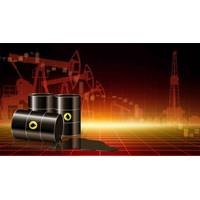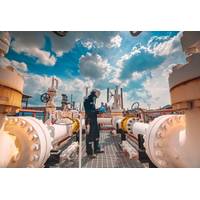Fashion brands boost solar energy with textile suppliers
Rooftop solar is key to energy transformation for Bangladeshi garment industries
New initiatives help find funding for solar expansion
Fashion brands finance solar projects for small firms
Tahmid Zami Tahmid Zami
Textile suppliers in Bangladesh, who account for 85% exports of Bangladesh, are under pressure to become more environmentally friendly. They hope that new initiatives will help them find the money they need to expand rooftop systems powered by solar energy.
Few energy companies are willing to invest in solar power plants because they fear that smaller factories may default on their commitments.
Fashion brands and energy companies are partnering up to build rooftop solar capacity in Bangladesh for smaller suppliers. This creates a synergy between brand commitment and investment with energy company expertise.
Greener Garments Initiative is an example of this. The Danish clothing brand Bestseller and the solar energy company SOLShare jointly invested in the construction of rooftop solar panels at garment factories located in Bangladesh.
SOLShare's Aziza Sultana Mukti said that a greater brand support for solar growth by suppliers could accelerate the energy transition in the industry.
She added that the involvement of fashion brands will encourage suppliers to switch faster to solar power, while also making the investment for the company building the photovoltaic systems more secure.
Mukti said that the joint initiative for small and medium sized factories had already installed combined capacities of more than 7 megawatts peak (MWp) over the past two years.
Although this is not a large capacity, GGI has grown its solar installations by over 200% in the past 18 months. It plans to expand capacity in the next years.
Apparel impact institute, which pools contributions from brands and charitable organizations to help Bangladeshi factories develop rooftop solar power capacity is another initiative being tested.
According to a report by the Institute for Energy Economics and Financial Analysis, a global think-tank, Bangladesh's textile industry could generate 5,000 MW, or about 5% of the total country's generation capacity. Rooftop solar installations currently make up less that 1%.
Shafiqul alam, IEEFA’s lead energy analyst in Bangladesh said: "Industrial roof-top solar is not reaching its full potential because many manufacturers are unable to access required financing."
Focus on Smaller Factories
The majority of progress made in the development of rooftop solar power has been achieved by large manufacturers.
The DBL Group is one of the largest manufacturers in the country with over 50,000 employees. They invested a considerable amount to increase their solar power generation.
Mashook Mujib, Senior Manager of Sustainability at DBL Group said: "Arranging financing for renewable energy projects was not a difficult task for us. We have invested in our own rooftop solar plants."
Chowdhury said that large suppliers are more likely than smaller ones to invest in rooftop solar plants using capital expenditure.
He said that smaller joint initiatives, such as the GGI of SOLShare and Bestseller are used to implement operational expenditure projects within the textile industry.
The energy company owns, operates and builds the rooftop solar plants and charges the factory the electricity generated. Any surplus power is sold to the grid.
This model is better for smaller suppliers, as it helps them to fill in their knowledge, finance and technical gaps, said MohiuddinRubel, former director and managing director of Denim Expert Ltd. and Bangladesh Garment Manufacturers and Exporters Association.
Brand Perspective
According to a study by the Apparel Impact Institute published last year, fashion brands such as Bestseller must reduce their suppliers' emissions in order to achieve their decarbonization targets. Suppliers account for 96% the emissions of the apparel sector.
As a large buyer from Bangladesh, one of Bestseller's key sourcing areas, we are committed in supporting suppliers as they navigate more and more climate goals.
Tapsell said that Bestseller will also consider supporting suppliers who make large investments in clean technologies, such as biomass boilers and heat pumps.
Rubel said that "financing solar panels on factory roofs may not be sufficient - they need to do a few other things to make the energy transition."
He said that for decarbonization in the long term to be sustainable, brands must partner with suppliers on a long-term basis, and government tax breaks, as well as low-cost finance, are needed.
(source: Reuters)


